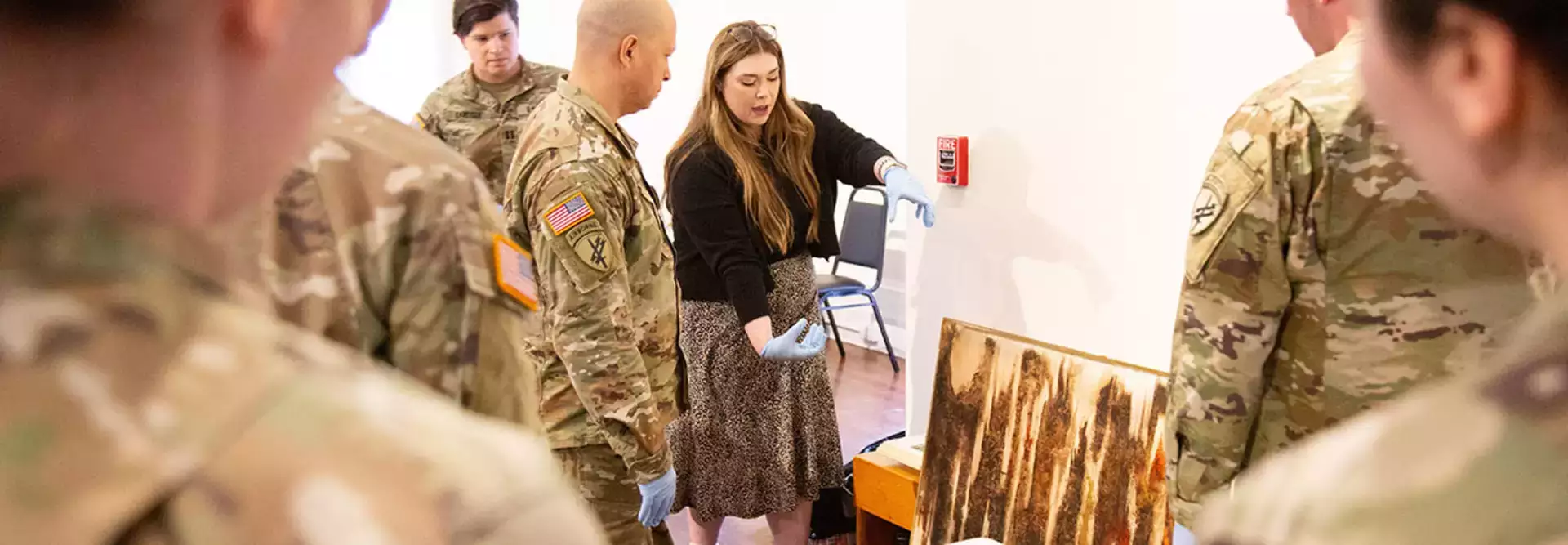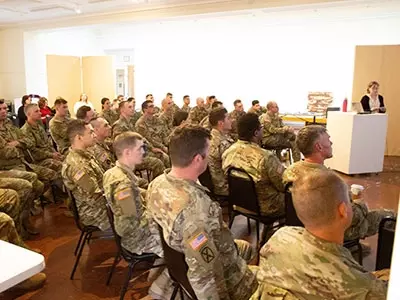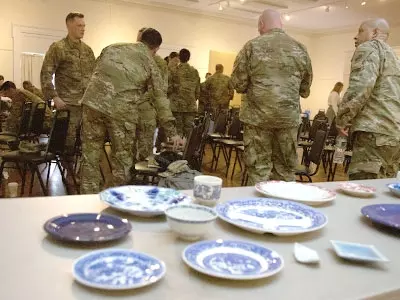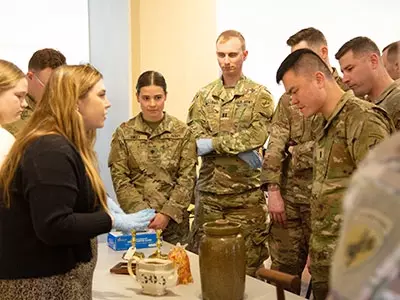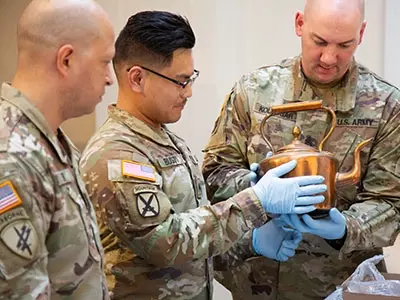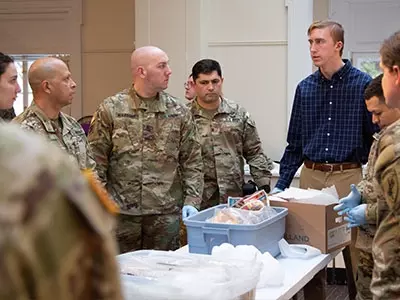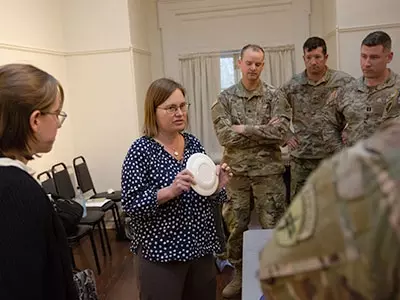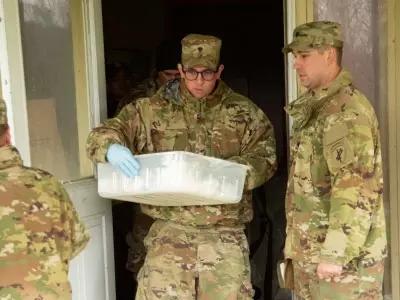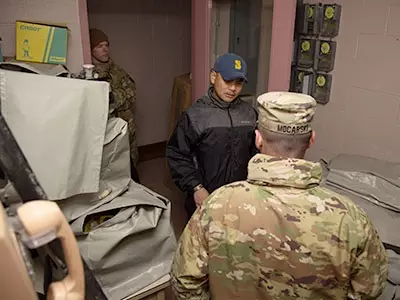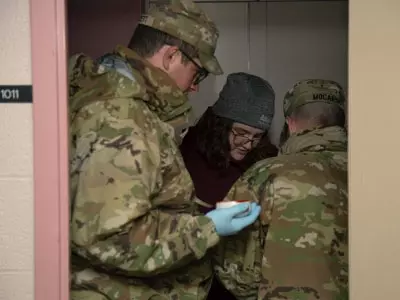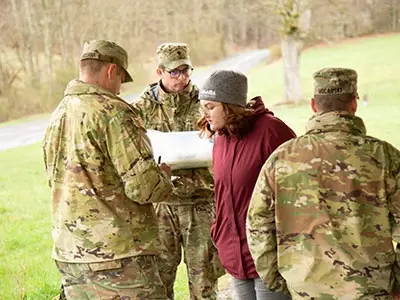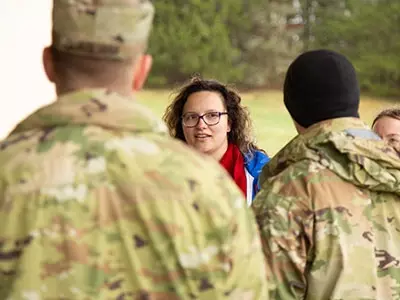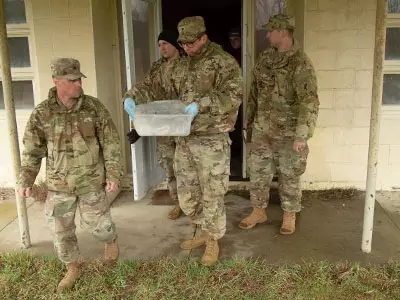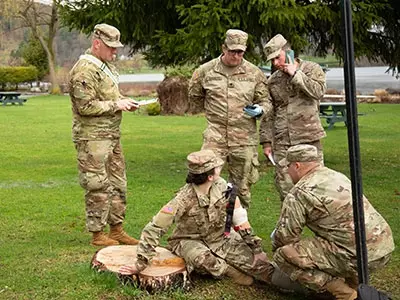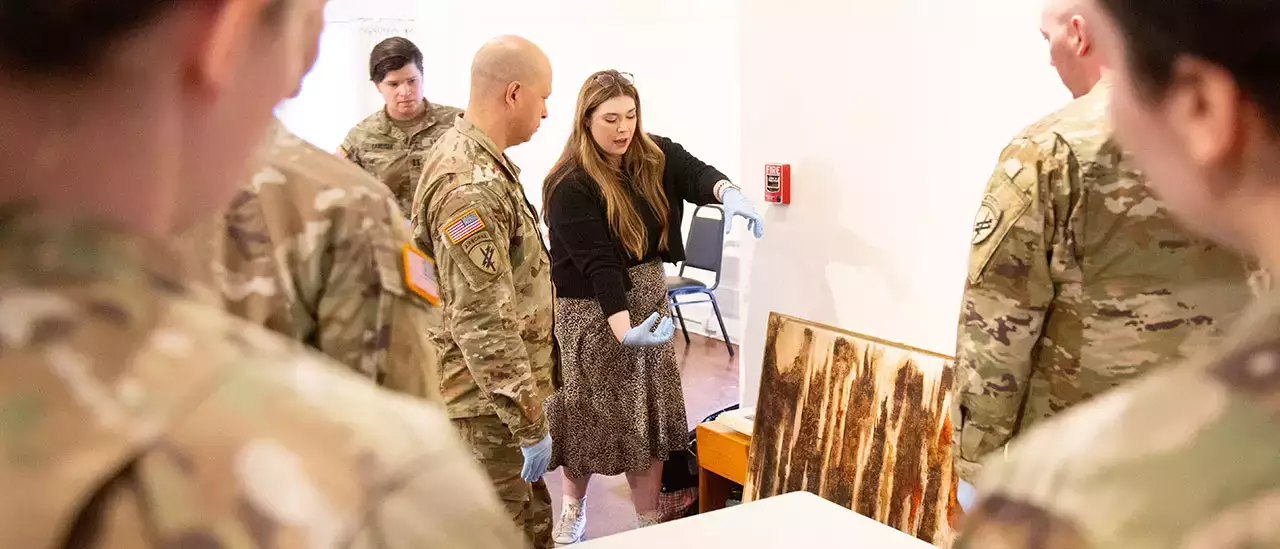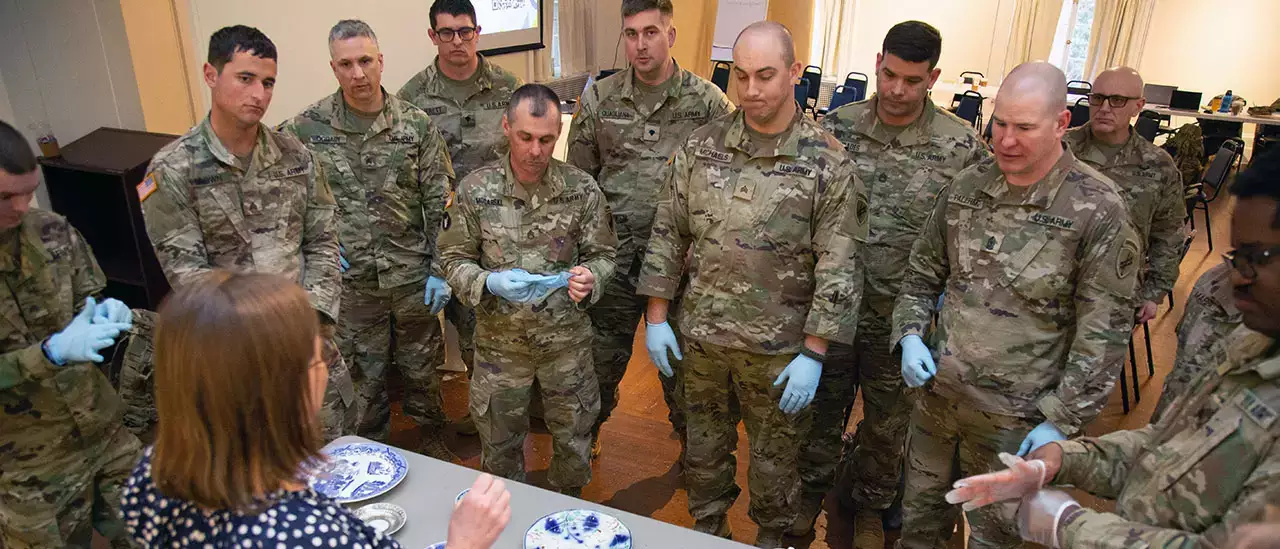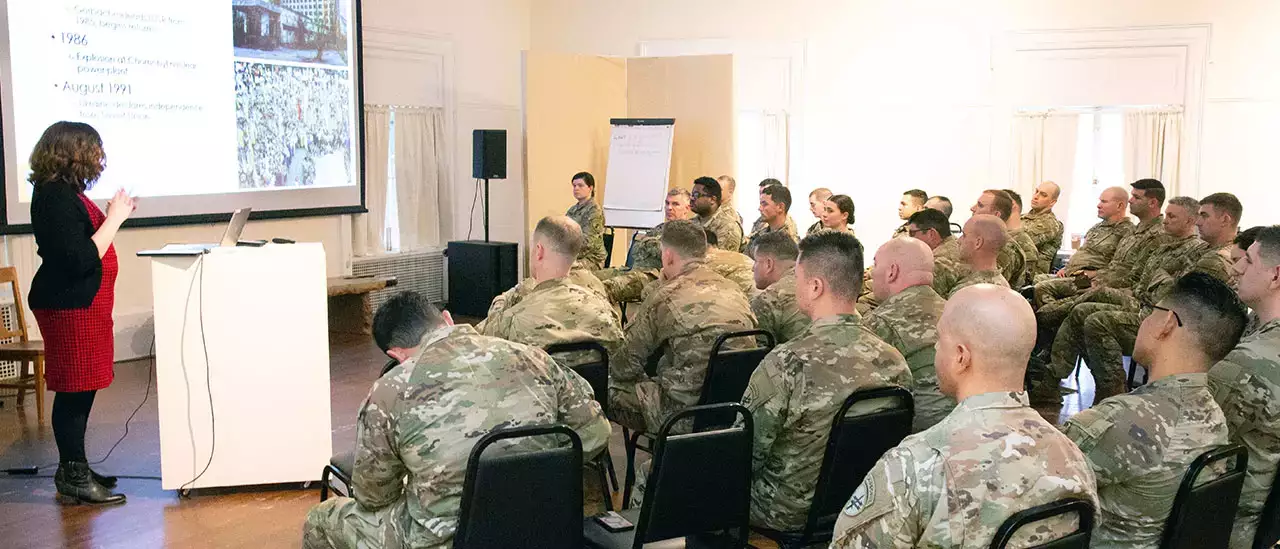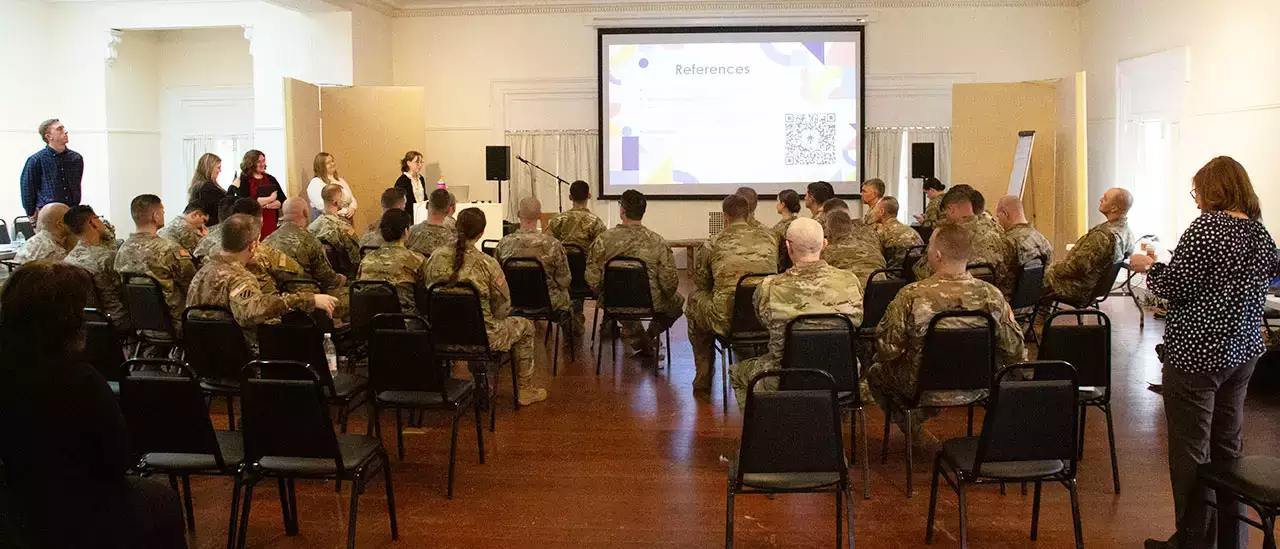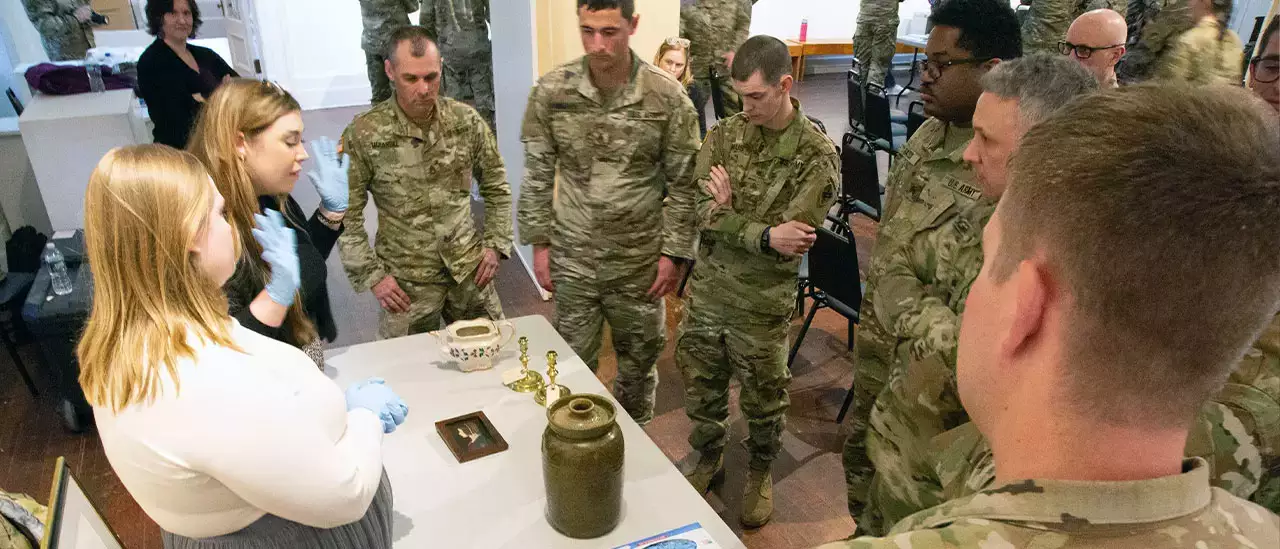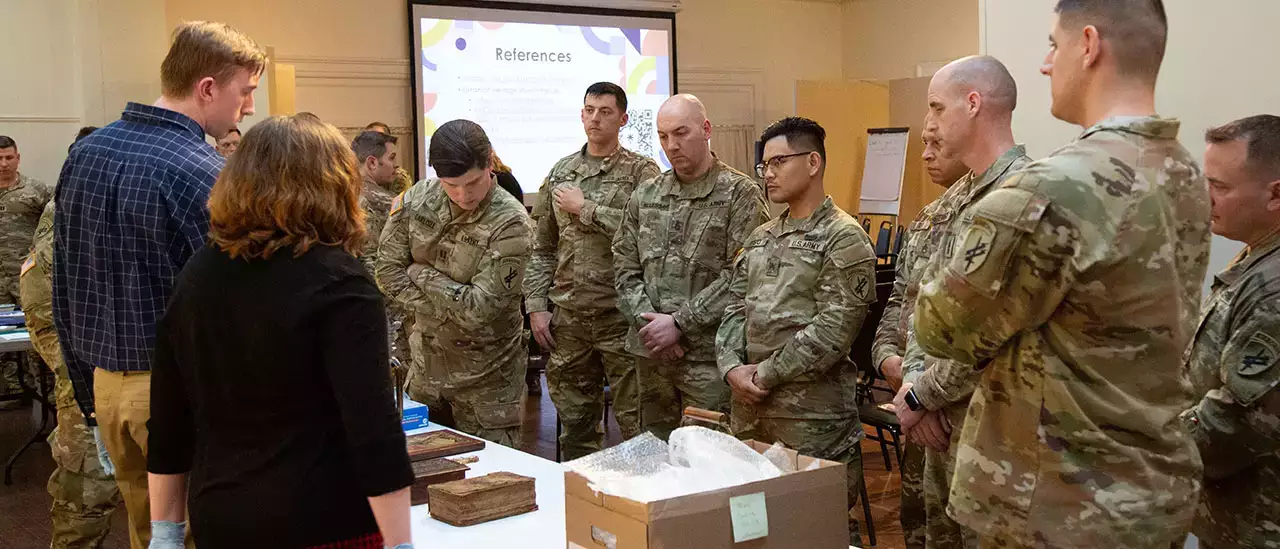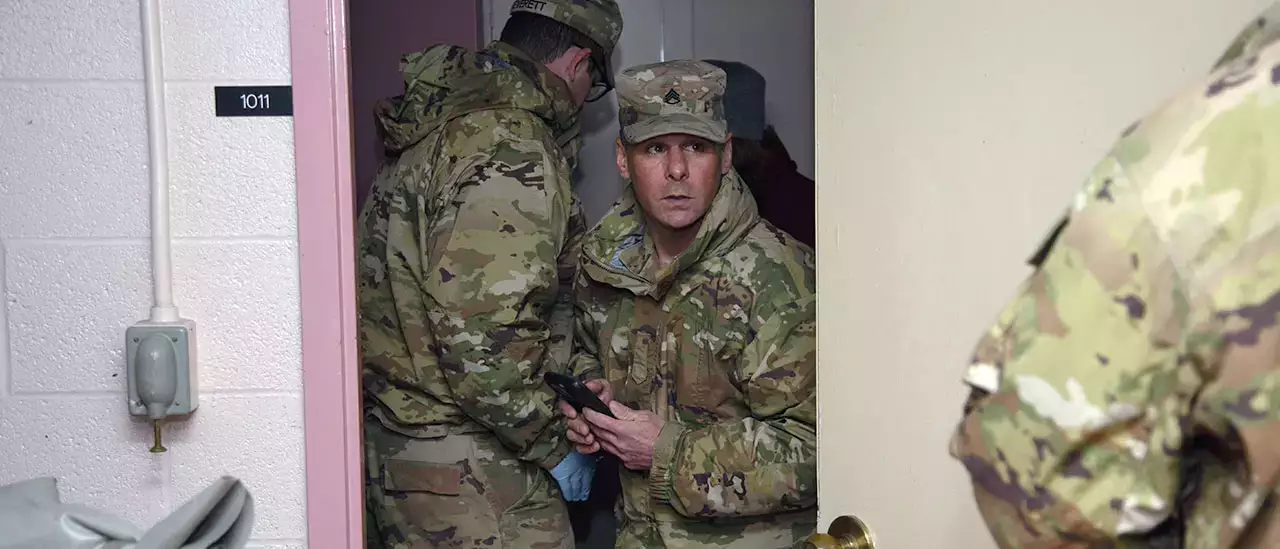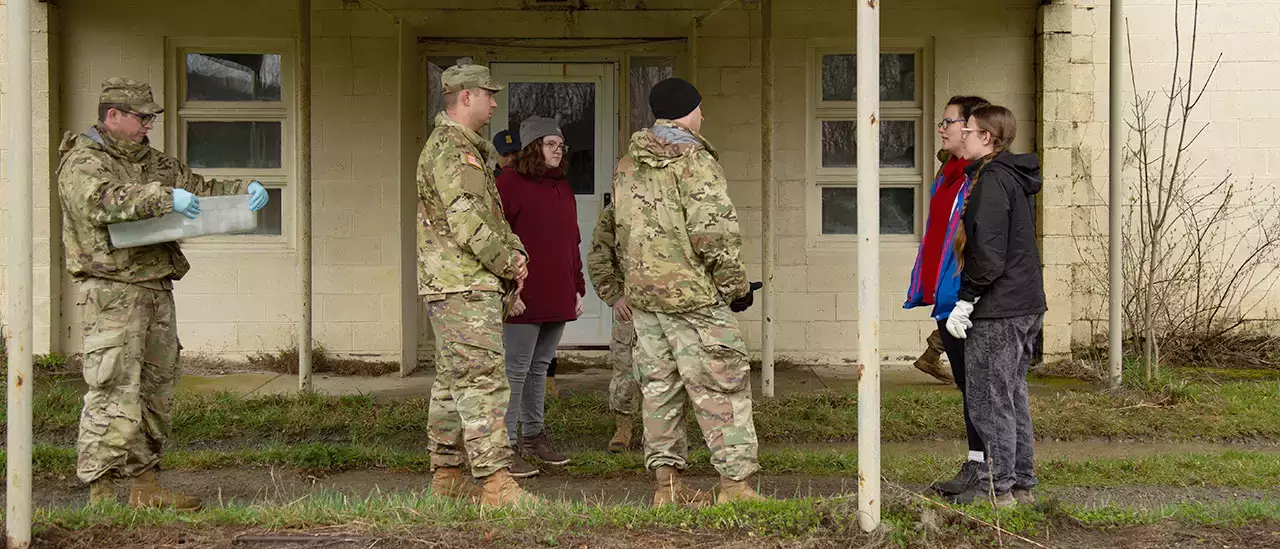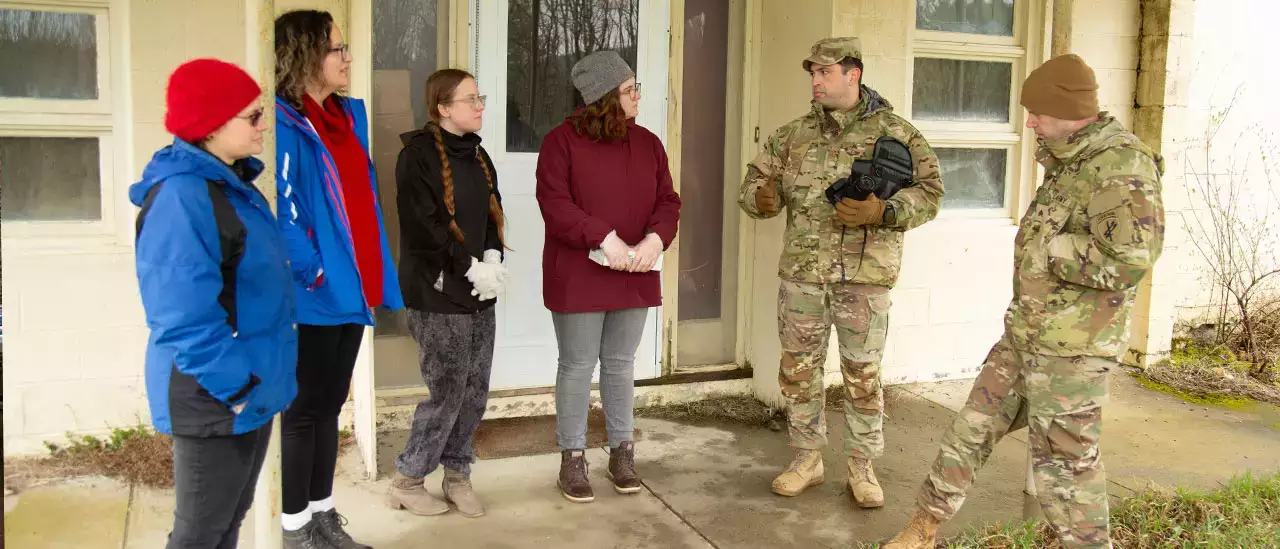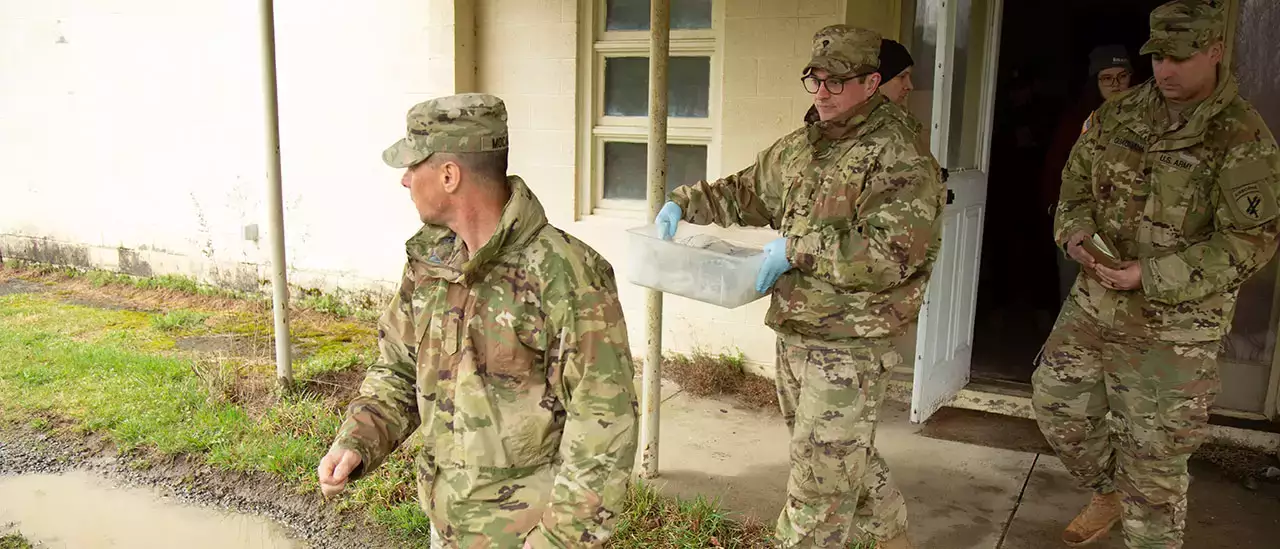With quiet determination, 43 camouflage-outfitted soldiers and a handful of SUNY Oneonta graduate students quickly pack up vases and framed artwork in brown paper and cardboard scraps in a large room overlooking Main Street in Cooperstown, NY. The team is on a faux peacekeeping mission to preserve the heritage and artifacts of the nation of Gamma after the peaceful protest and overthrow of its dictatorship.
Never heard of Gamma? You’re not alone. It is a fictitious country that could be a stand-in for any number of countries in Africa or Eastern Europe presently facing violent conflicts that desperately need soldiers specially trained to recognize and recover culturally significant items.
Each spring for the past nine years, a unique partnership between Army Civil Affairs and SUNY Oneonta has brought together a battalion of Army reservists and graduate students to train the military’s next generation of protectors of cultural heritage.
The partnership between SUNY Oneonta’s Cooperstown Graduate Program in Museum Studies and the 403rd Civil Affairs Battalion began in 2015 when ISIS was targeting cultural property in Palmyra, Syria.
On an overcast chilly day this past April, the top floor of the historic Cooperstown Village building served as a lab-style classroom where soldiers were guided through the best practices for identifying and preserving cultural artifacts by Dr. Cindy Falk, Assistant Dean of Graduate Studies and Professor of Material Culture for SUNY Oneonta’s Cooperstown Graduate Program and her Museum Studies graduate students. Tables were set up around the perimeter of the space with different items, including clay serving pieces, porcelain plates, books, and framed artwork. Students and presenters discussed what defines a cultural artifact and what traditions or living expressions of culture are passed down by ancestors.
“Students at the Cooperstown Graduate Program plan the classroom portion of the training as part of the Culture and Collections course, but they participate as both presenters and role players in a volunteer capacity that allows them to use and expand their knowledge and skills,” says Dr. Falk.
In another exercise, the soldiers practiced how to safely pack and carry artifacts if they were to encounter a situation where moving the items is necessary to protect them from being destroyed in a wartime attack.
On the second day of the training, soldiers and students engaged in an exercise that took them out of a classroom setting and onto the village streets and wooded trails to identify, collect, preserve and transport artifacts using the techniques they learned on day one.
“Working with SUNY Oneonta graduate students allowed the unit to vary our training scenarios while building rapport with an academic community who may have limited interaction with the miliary,” said Army Maj. Andrew Coody. “We appreciated their insights on cultural preservation best practices, and they expressed their gratitude knowing their expertise will now be shared worldwide whenever the 403rd Civil Affairs Battalion is called to serve.”
With violent conflicts raging in many historically significant parts of the world, there is a need for soldiers with highly developed competencies in recognizing and recovering culturally significant items. It is training opportunities like this one in Cooperstown, along with training programs offered through the New York Metropolitan Art Museum, that develop those critical competencies.
Modifications to the program are based on requests made by the soldiers. In the years ahead, Dr. Falk hopes to involve more faculty and explore options for formal credentialing for soldiers in cultural property protection.
About the Civil Affairs Battalion
The 403rd Civil Affairs Battalion is one of the battalions within the 353rd Civil Affairs Commands. The soldiers of the 353rd CACOM are Army Reservists with expertise in complex socio-political issues. Civil Affairs soldiers contribute to global stability by advising U.S. leaders, as well as foreign nations, on nuanced topics, such as preservation of cultural artifacts, infrastructure development, court administration and international economies.
About SUNY Oneonta’s Cooperstown Graduate Program
SUNY Oneonta's Cooperstown Graduate Program (CGP) in Museum Studies trains creative, entrepreneurial museum leaders committed to generating programs and services for the public good. Students in the master's degree program learn by doing tangible, useful work on real-world projects. They dedicate themselves to developing institutions that play a central role in their communities, encouraging broad public audiences to use artifacts and the study of science, art and history as a catalyst for social change.
Blending hands-on practical experiences with field trips, internships and a rigorous academic program, the Cooperstown Graduate Program has an excellent track record of successful employment for graduates. More than 1,000 alumni have attained prominence in museums and related fields as directors, educators, curators and programming specialists.
Museum Studies students attend classes in Cooperstown, a village 25 miles northeast of Oneonta, and have full access to the resources and facilities of SUNY Oneonta.
